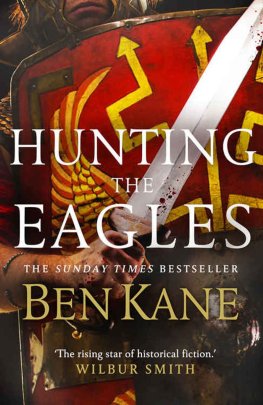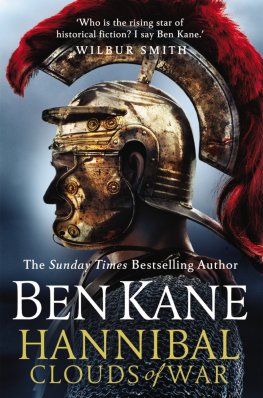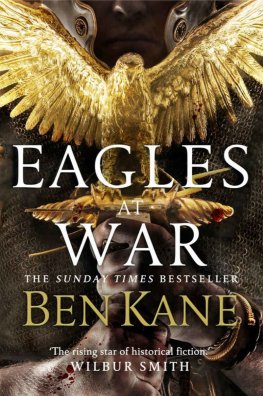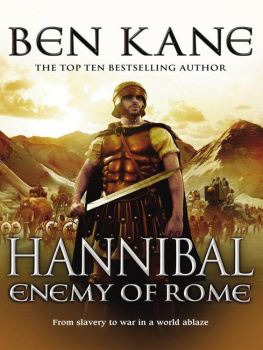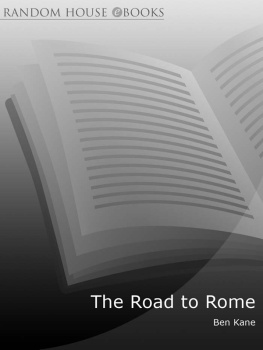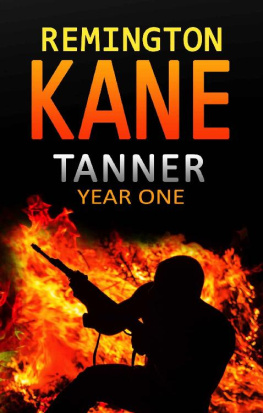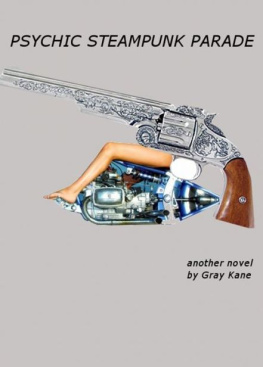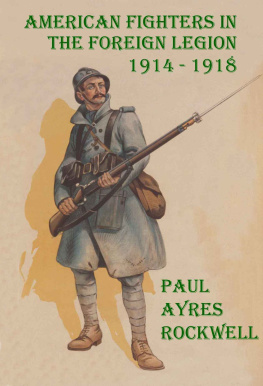Ben Kane - The Forgotten Legion
Here you can read online Ben Kane - The Forgotten Legion full text of the book (entire story) in english for free. Download pdf and epub, get meaning, cover and reviews about this ebook. year: 2008, publisher: Random House, genre: Detective and thriller. Description of the work, (preface) as well as reviews are available. Best literature library LitArk.com created for fans of good reading and offers a wide selection of genres:
Romance novel
Science fiction
Adventure
Detective
Science
History
Home and family
Prose
Art
Politics
Computer
Non-fiction
Religion
Business
Children
Humor
Choose a favorite category and find really read worthwhile books. Enjoy immersion in the world of imagination, feel the emotions of the characters or learn something new for yourself, make an fascinating discovery.

- Book:The Forgotten Legion
- Author:
- Publisher:Random House
- Genre:
- Year:2008
- Rating:4 / 5
- Favourites:Add to favourites
- Your mark:
- 80
- 1
- 2
- 3
- 4
- 5
The Forgotten Legion: summary, description and annotation
We offer to read an annotation, description, summary or preface (depends on what the author of the book "The Forgotten Legion" wrote himself). If you haven't found the necessary information about the book — write in the comments, we will try to find it.
The Forgotten Legion — read online for free the complete book (whole text) full work
Below is the text of the book, divided by pages. System saving the place of the last page read, allows you to conveniently read the book "The Forgotten Legion" online for free, without having to search again every time where you left off. Put a bookmark, and you can go to the page where you finished reading at any time.
Font size:
Interval:
Bookmark:
THE FORGOTTEN LEGION
This eBook is copyright material and must not be copied, reproduced, transferred, distributed, leased, licensed or publicly performed or used in any way except as specifically permitted in writing by the publishers, as allowed under the terms and conditions under which it was purchased or as strictly permitted by applicable copyright law. Any unauthorised distribution or use of this text may be a direct infringement of the author's and publisher's rights and those responsible may be liable in law accordingly.
ISBN 9781409025016
Version 1.0
www.randomhouse.co.uk
Published by Preface 2008
2 4 6 8 10 9 7 5 3 1
Copyright Ben Kane 2008
Ben Kane has asserted his right under the Copyright, Designs and
Patents Act 1988 to be identified as the author of this work
This electronic book is sold subject to the condition that it shall not by way of trade or otherwise, be lent, resold, hired out, or otherwise circulated without the publisher's prior consent in any form other than that in which it is published and without a similar condition including this condition being imposed on the subsequent purchaser
First published in Great Britain in 2008 by Preface
Random House, 20 Vauxhall Bridge Road, London SW1V 2sV
www.rbooks.co.uk
www.prefacepublishing.co.uk
Addresses for companies within The Random House Group Limited can be found at:
www.randomhouse.co.uk/offices.htm
The Random House Group Limited Reg. No. 954009
A CIP catalogue record for this book is available from the British Library
ISBN: 9781409025016
Version 1.0
To C.V. and P.v.G., with thanks.
Crassus at the Euphrate lost his eagles, his son and his soldiers,
And was the last himself to perish.
'Parthian, why do you rejoice?' said the goddess. 'You shall return
the standards,
While there shall be an avenger who shall take vengeance for the
death of Crassus.'
Ovid, Fasti
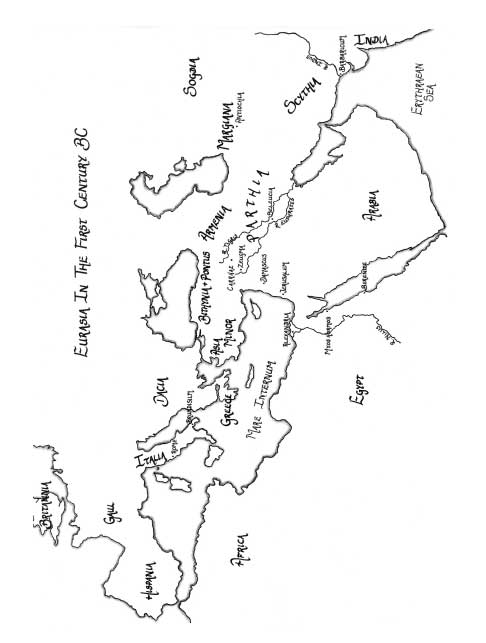
In his Natural History narrative, Pliny the Elder described how Roman survivorsof the battle of Carrhae in 53 BC were sent to Margiana.
Situated in modern-day Turkmenistan, this area is more than fifteen hundredmiles from where the men were taken captive. Used as border guards, the tenthousand legionaries would have journeyed farther east than most Romans inhistory.
But their story does not end there.
In 36 BC, the Chinese historian Ban Gu recorded that soldiers in the armyof Jzh-jzh, a Hun warlord and ruler of a city on the Silk Road, fought in a'fish-scale formation'. The term used to describe their formation is unique inChinese literature and many historians assert that it refers to a shield wall. Atthat time only the Macedonians and Romans fought in such a way. Greek militarytraining would need to have endured in the area for more than a centuryto influence those men. Interestingly this battle took place only seventeen yearsafter Carrhae and less than five hundred miles from the border of Margiana.
Further to the east, in China, lies the modern settlement of Liqian. Theorigins of its name are uncertain, but scholars consider it to have been foundedbetween 79 BC and AD 5 under the name of Li-jien, meaning 'Rome' in ancientChinese. An unusually large number of its present-day inhabitants haveCaucasian features - blond hair, hooked noses and green eyes. DNA samplesare currently being studied by a local university to see if these people are thedescendants of the ten thousand legionaries who marched east from Carrhaeand into history.
The Forgotten Legion.
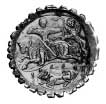
Rome, 70 BC
It was hora undecima, the eleventh hour, and the sprawling city wasbathed by the red glow of sunset. A rare breeze moved air betweenthe densely packed buildings, passing relief from the stifling summerheat. Men emerged from their houses and flats to finish the day's business,chat outside shops and stand drinking at open-fronted street taverns. Theeager cries of merchants competed for the attention of passers-by whilechildren played on doorsteps under the watchful eyes of their mothers.From somewhere in the centre, near the Forum, came the rhythmic soundof chanting in a temple.
This was a sociable and safe hour, but shade was already lengtheningin the alleyways and small courtyards. Sunlight fell away from the tall stonecolumns and statues of the gods, returning the streets to a darker and lessfriendly grey colour. The seven hills that formed Rome's heart would bethe last parts to remain lit, until darkness claimed the capital once more.
Despite the time, the Forum Romanum was still thronged with people.Flanked by temples and the Senate, the basilicae, the huge covered markets,were filled with shopkeepers, soothsayers, lawyers and scribes plying theirtrade from little stalls. It was late in the day, but someone might want a willdrawn up, a prophecy made, a writ issued against an enemy. Mobile vendorsmade circuits of the area, trying to sell fruit juices that had been warm forhours. Politicians who had been working late in the Senate hurried outside,only stopping to talk if an ally's eyes could not be avoided. Seeing theirmasters, groups of slaves jumped up from board games scratched on to thesteps. Trying to avoid the blisters on their sunburnt shoulders, they swiftlylifted their litters and moved off.
A handful of determined beggars remained on the temple steps, hopingfor alms. Several were crippled but proud veterans of the legions, the invinciblearmy which had provided the Republic's wealth and status. They woretattered remnants of uniform mail shirts more rust than rings of iron,brown tunics held together by patches. For a copper coin they would recounttheir martial stories the blood shed, limbs lost, comrades buried in foreignlands.
All for the glory of Rome.
Despite dwindling light, the Forum Boarium, where beasts were traded,was also full of citizens. Unsold cattle bellowed with thirst after a day inconstant sunshine. Sheep and goats huddled together, terrified by the smellof blood from the butchers' blocks only a few steps away. Their owners,small farmers from the surrounding countryside, prepared to drive themto night pasture beyond the walls. On the Forum Olitorium too, stallsselling foodstuffs were bustling with customers. Ripe melons, peaches andplums added their aromas to spices from the Orient, fresh fish and whatremained of the day's bread. Keen to sell all their fruit and vegetables,vendors offered bargains to anyone who caught their eye. Plebeian womengossiped as they finished their shopping and went into shrines to offer aswift prayer. Slaves who had been sent to buy ingredients for last-minutefeasts cursed as the light disappeared from the sky.
But away from these open spaces, anyone who was still out scuttledfaster to reach the safety of their houses. No decent Roman wanted to beoutside after sunset, especially in the dismal alleyways between the insulae,the cramped blocks of flats in which most citizens lived. By night the unlitstreets were populated by thieves and murderers.

Northern Italy, 70 BC
The raven hopped on to the dead lamb's head and stared at Tarquinius.He was still more than fifty paces away. It croaked scornfully andpecked at the staring eyeball with its powerful beak. The lamb wasno more than three days old, its meagre flesh already devoured by mountainwolves.
Font size:
Interval:
Bookmark:
Similar books «The Forgotten Legion»
Look at similar books to The Forgotten Legion. We have selected literature similar in name and meaning in the hope of providing readers with more options to find new, interesting, not yet read works.
Discussion, reviews of the book The Forgotten Legion and just readers' own opinions. Leave your comments, write what you think about the work, its meaning or the main characters. Specify what exactly you liked and what you didn't like, and why you think so.

